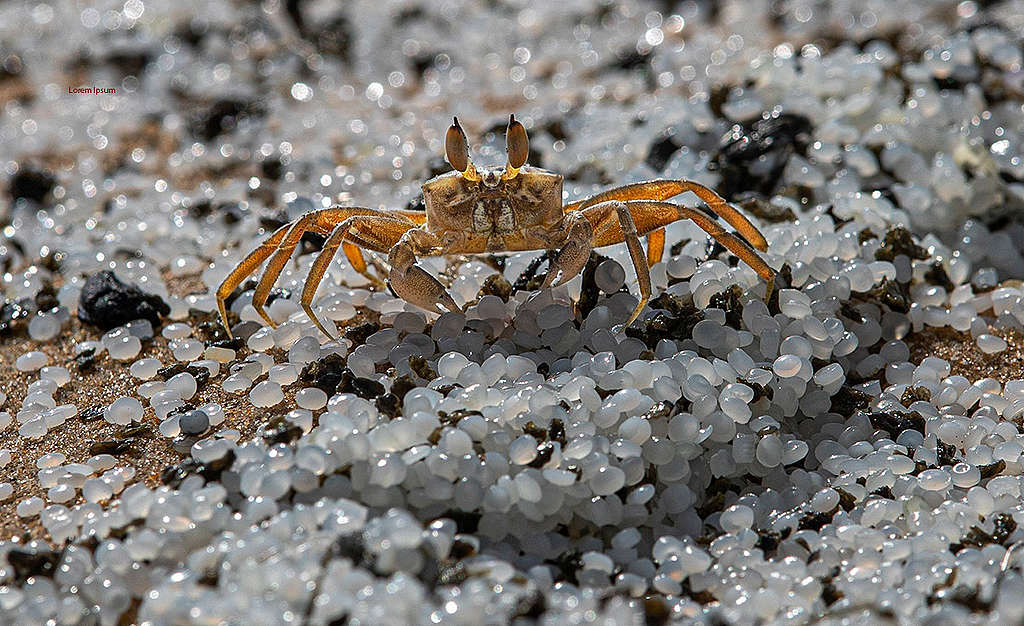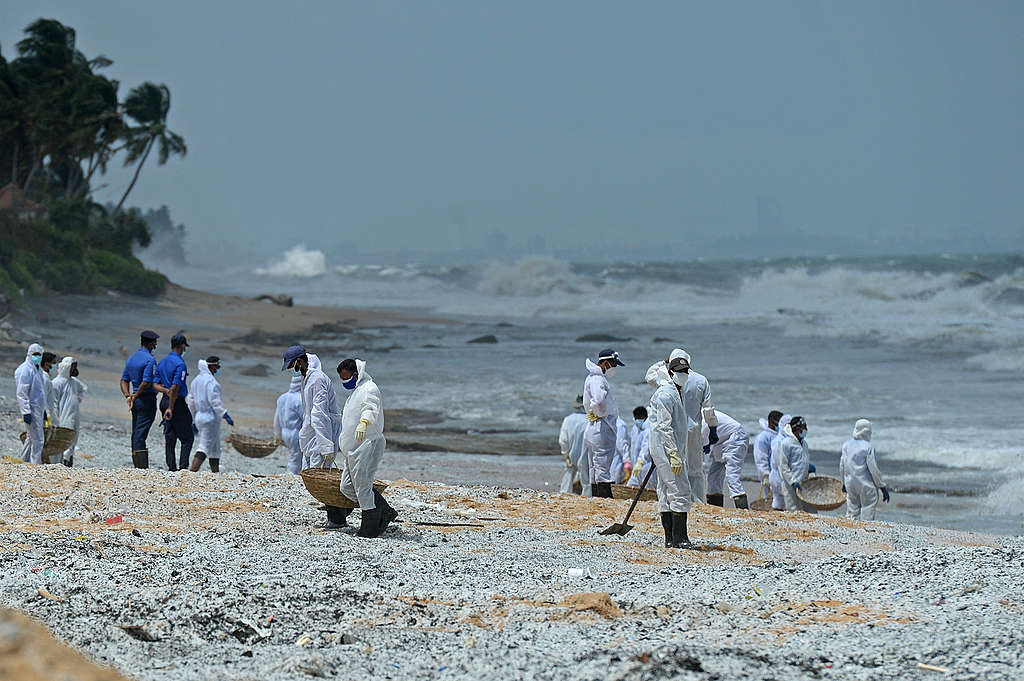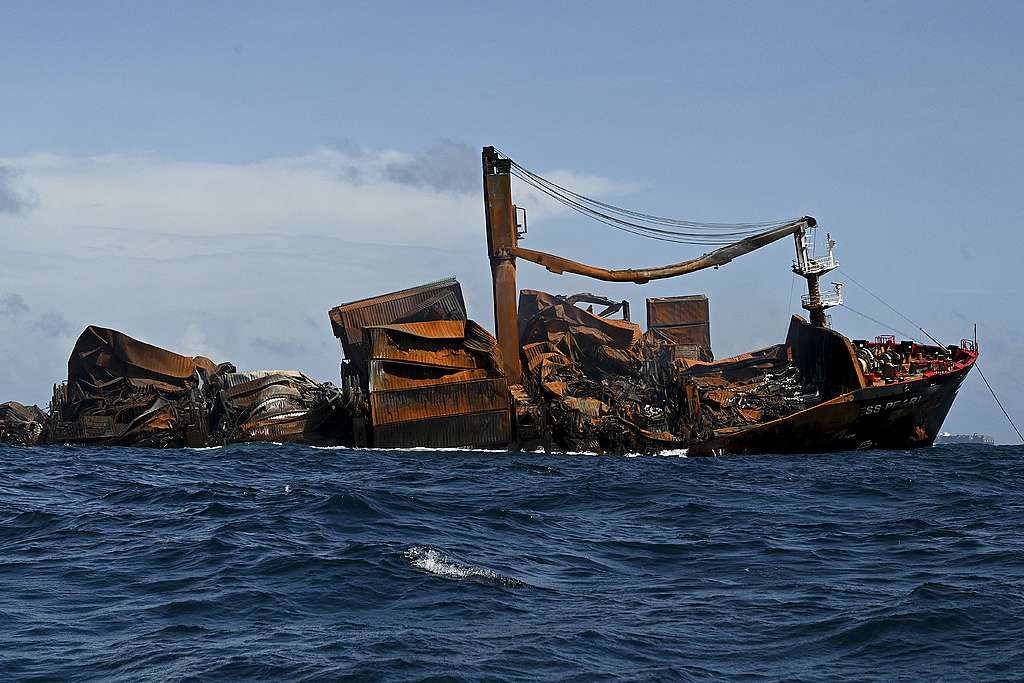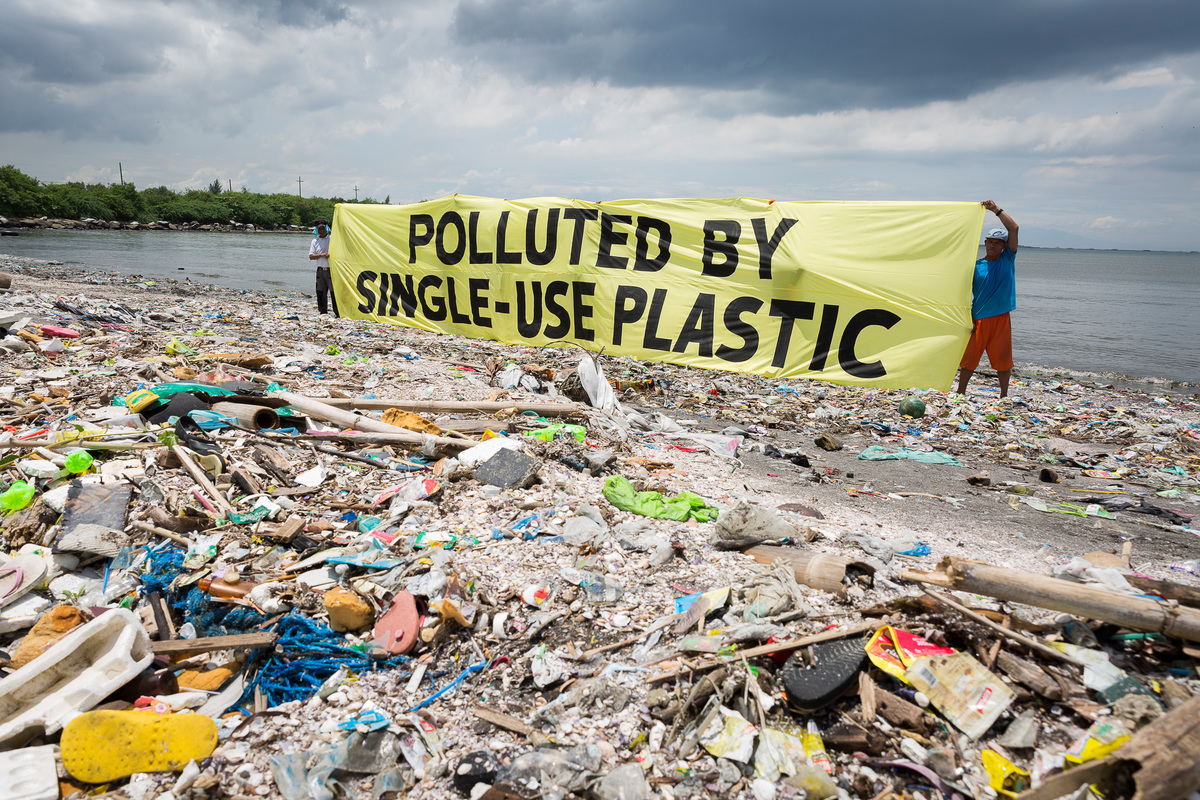Tons of toxic microplastics used to make single-use plastic packaging are covering Sri Lanka’s western coastline.

What happened?
Sri Lanka is facing one of the worst environmental disasters in its history after tons of plastic pellets have washed ashore near its capital devastating kilometers of pristine beaches and threatening marine life. The pellets, microplastics the size of lentils, are the type used as raw materials in the production of single-use plastic packaging.

Why it matters
Why are hundreds of tons of newly produced microplastics shipped as pellets across the world’s oceans? As if the plastic pollution crisis wasn’t already dire enough!
In less than 70 years of mass production, plastic has worked its way into every nook and cranny of the planet and its effects on the environment and climate are everywhere.
Images of soldiers and volunteers tirelessly working to remove the tiny microplastics from Sri Lanka’s beaches are once again shedding light on a broken system that is failing both us and the planet we call home. Natural resources are extracted to maximise profits over people. Fossil fuel and consumer goods companies are working together to power a throwaway economic model, where profit trumps the costs to our communities.
What we’re saying about it
“Big brands cannot continue increasing plastic production without devastating the health of communities and our biodiversity around the globe while fueling runaway climate change,” said Abigail Aguilar, Regional Campaign Coordinator at Greenpeace Southeast Asia. “The clock is ticking. Enough of the greenwashing by big brands and the fossil fuel industry.”

What needs to happen
Plastic is not just an ocean and waste problem, it is a climate, health and social justice problem too. There is no human health without planetary health: big consumer goods brands that rely on single-use plastic, like Coca-Cola, Nestle and Pepsi, must rethink their business model and embrace a green and just future.
And in terms of environmental disasters such as this, the shipping company should be held responsible for all lost containers, their contents and any adverse impacts caused. Importantly, plastic should be classified as an environmentally hazardous material and handled as such by being allocated IMDG codes (international code for the maritime transport of dangerous goods in packaged form).
Ana Hristova is Plastic Campaign Strategist with Greenpeace International



